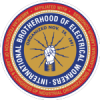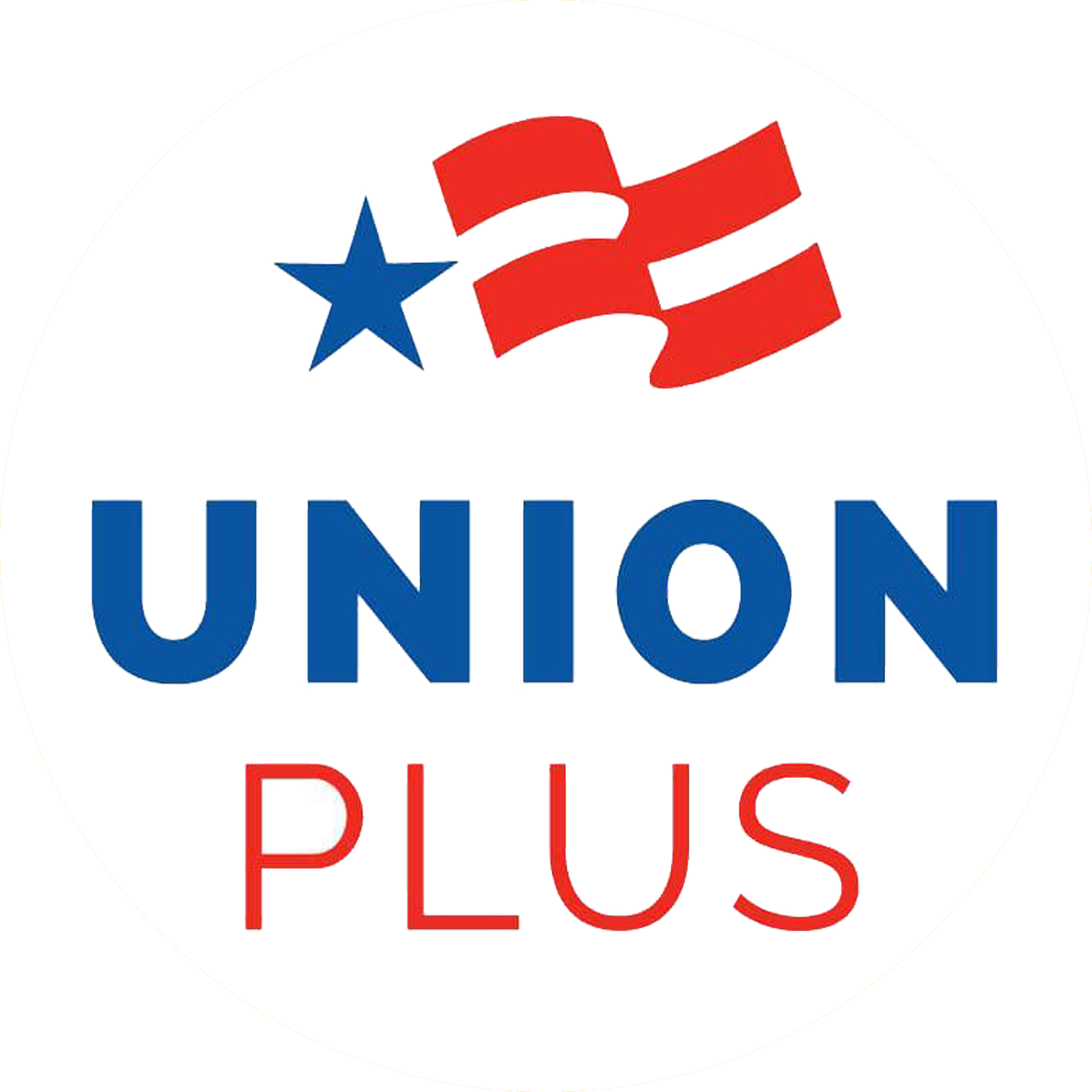IBEW Local 2071
IBEW Local 2071 proudly represents the skilled electricians working at Portsmouth Naval Shipyard, a critical hub for maintaining and modernizing the United States Navy’s submarine fleet. These dedicated professionals uphold the highest standards of craftsmanship and safety while ensuring the seamless operation of complex electrical systems aboard naval vessels. Their work not only supports the nation’s defense but also highlights the importance of union solidarity in fostering fair wages, safe working conditions, and professional growth. With a strong commitment to excellence, IBEW Local 2071 members are essential to the mission of preserving naval readiness and advancing technological innovation.
Elections: A union seeking to represent a group of federal employees may file a petition for an election. If the petitioner can establish a “showing of interest” and meet other requirements, the FLRA will conduct an election to determine if employees in an appropriate unit wish to be represented for collective-bargaining. purposes by the union
Clarifications of Unit: The FLRA also determines which employees are included in the “bargaining unit,” such that they are eligible for union representation. For example, employees properly classified as “management officials” or “confidential employees” are excluded from bargaining units. If there is a dispute about whether an employee, or group of employees, is part of the bargaining unit, an agency or union can petition the FLRA to resolve the dispute.
Consolidations of Units: Unions or agencies may petition to consolidate two or more bargaining units in an agency.
Decertification: Employees already represented by a union may petition the FLRA to be represented by another union or to be unrepresented.
IBEW - ONE UNITED VOICE

At IBEW 2071, we are dedicated to building a brighter future for workers across New England. Join us to access top-notch training, secure job opportunities, and long-term career stability.
By becoming a member of IBEW 2071, you’ll benefit from higher wages, stronger job security, and a dependable career path. Provide for your family, grow in a lasting profession, and take pride in the work you do.
Representation
The FLRA is responsible for administering the federal government’s labor-relations program. As part of that responsibility, the FLRA may assist in resolving any matter related to the representation of employees, including conducting union elections and deciding which employees will be included in the unit of employees that a union represents (the “bargaining unit”).
Representation Frequently Asked Questions (FAQs)
What is a representation petition?
Unions, agencies and employees file representation petitions to resolve any matter related to the representation of employees, such as whether employees wish to be represented by a union or which employees will be included in the unit of employees that a union represents.
Who can file a representation petition?
Employees, unions, and agencies can each file certain types of petitions.
What are the different types of petitions?
The main types of petitions are:
- for an election to determine if employees wish to be represented by a union for the purpose of collective bargaining
- for an election to determine if employees no longer wish to be represented by a union (called a decertification petition)
- to clarify whether certain employees or positions are eligible for inclusion in the bargaining unit that a union represents
- to amend an existing recognition or certification (e.g. to change a parties’ name or reflect a union’s change in affiliation)
- to consolidate two or more bargaining units, with or without an election
- to resolve questions relating to the continued appropriateness of an existing unit due to a substantial change in the character and scope of the unit (e.g. changes in operations due to reorganization, realignment or merger);
- to decertify a union when the agency asserts a good faith doubt of a union’s continued majority status
- for eligibility for dues allotment (deduction) in a unit without an exclusive representative and for consultation rights
- to decertify a union based on a claim that it is subject to corrupt influences
- to resolve any other matter relating to representation
For more information about election petitions, see the Election FAQs. For information about all other types of petitions, including information about which party has standing to file each type of position, see the Representation Case Handling Manual.
Where do I file a petition?
File a petition with the Regional Director for the Region in which the employees affected by the petition are located. If the employees are located in two or more regions, file the petition with the Washington Regional Director.
What should I do before I file a petition?
The FLRA strongly encourages parties affected by issues that may be raised in a petition to meet prior to the filing of a petition to discuss their interests and to attempt to narrow and resolve the issues. If requested by all parties, a representative of the appropriate Regional Office will participate in these meetings. For example, Regional Office employees have assisted parties in narrowing or resolving issues arising from an agency’s reorganization.
How will I be notified about a petition?
The Regional Director sends a letter to unions or agencies affected by the petition and provides the name and contact information for the agent assigned to the case. In the opening letter, the Regional Director may also direct an agency to post a notice that a petition was filed.
What happens after a petition is filed?
After the representation petition is filed, the Region investigates the petition. The parties are required, during this investigation, to furnish the Regional Director and the other parties information concerning the issues raised in the petition. The Regional Director may also require all affected parties to meet to narrow and resolve the issues raised in the petition. Parties should be prepared to clarify the purpose of the petition and discuss the facts and legal issues in dispute.
What happens after the investigation?
In a petition for an election, if the parties agree to the appropriateness of the unit, they may enter into an election agreement and proceed to an election. See Election FAQs below for more information about election petitions.
In all other circumstances, if after an investigation, there is a material issue of fact or there is reasonable cause to believe a question concerning unit appropriateness exists, the Regional Director may issue a notice of hearing.
Are there any alternatives to a hearing?
The parties may enter into a joint stipulation that addresses all the facts necessary to decide the matter. A Regional Office investigation may also be an appropriate alternative to a hearing in some cases. In such cases, the Regional Director reviews the record and issues a Decision and Order based on the stipulation or investigation.
How will I learn about the hearing?
The Regional Director will send the parties a notice of hearing that establishes a date for a prehearing conference and a hearing date.
What happens at the prehearing conference?
The purpose of a prehearing conference is to fully discuss, narrow and resolve the matters at issue and to prepare for hearing. All parties must participate in the prehearing conference.
What is the purpose of a hearing?
Unlike many types of litigation, a representation hearing is investigatory, not adversarial. The sole purpose is to develop a full and complete record of relevant and material facts upon which a Regional Director will rely in issuing a Decision and Order.
How are hearings conducted?
Hearings are conducted by a Hearing Officer who is appointed by the Regional Director. The Hearing Officer’s job is to ensure that all relevant and material facts concerning the matters at issue are addressed by the parties on the record. There is no burden of proof, with the exception of proceedings on objections to elections, and the formal rules of evidence do not apply.
What rights do parties have at a representation hearing?
Parties at a hearing have the following rights:
- To appear in person or by a representative
- To examine and cross-examine witnesses
- To introduce into the record relevant evidence
- To present oral argument at the close of the hearing
- To file a brief with the Regional Director within 30 days from the close of the hearing
What happens after the hearing?
The Regional Director resolves the matter in dispute by issuing a Decision and Order.
Can I appeal the Regional Director’s Decision and Order?
A party that seeks to appeal the Regional Director’s Decision and Order must file an application for review with the Authority within 60 days. For additional information about applications for review and representation proceedings, see the Authority’s discussion of representation matters.
Where can I find more information about representation matters?
See the Representation Resources page for links to our representation resources. Also click here for a link to the Statute and our regulations on representation proceedings (5 CFR Part 2422).
What are the different types of election petitions?
Unions may petition for an election to determine if employees wish to be represented by a union.
Bargaining unit employees may file a petition for an election to determine if employees in a unit no longer wish to be represented by a union (called a decertification petition).
Are there any situations that bar an election?
Yes, the following situations bar an election:
- Election Bar – Elections cannot be conducted if a valid election has been conducted in the unit in the preceding 12 calendar months.
- Certification Bar – Elections cannot be conducted if the FLRA has certified a union as the exclusive representative of employees in the petitioned for unit within the previous 12 calendar months.
- Contract Bar – Elections cannot be held if there is a lawful collective bargaining agreement in effect covering any of the employees in the claimed unit, unless
- the collective bargaining agreement has been in effect for more than three years, or
- the petition for exclusive recognition is filed not more than 105 and not less than 60 days before the expiration date of the agreement.
What do I need to file to petition for an election?
A petitioner must fill out the FLRA’s petition form and file it with a showing of interest and alphabetized list of names. The petition is available here, or through the Authority’s eFiling system.
What is a “showing of interest”?
To show interest in an election to certify a union as an exclusive representative, a union may file signed and dated authorization cards or petitions from employees authorizing the union to represent them, executed allotment of dues forms, evidence of employees’ membership in a union, or other evidence approved by the Authority.
For elections seeking to decertify an exclusive representative, employees may file signed and dated petitions or cards indicating that employees no longer wish to be represented by their existing union, or other evidence as approved by the Authority.
For both types of petitions, the showing of interest must be from 30% of the employees in the bargaining unit involved.
What is the purpose of a “showing of interest”?
A “showing of interest” signifies that employees want to be represented by a union or stop being represented by their existing union. It serves an administrative purpose to avoid unnecessary expenditure of time and funds when there is little interest in an election.
What happens after a party files a petition for election?
After the Regional Director certifies that the showing of interest is adequate, the Region investigates the petition to determine if the petitioned-for unit is appropriate and to determine whether there are other non-procedural disputes that must be resolved for the election to go forward. If there are no disputes requiring a hearing or other action, the Regional Director encourages the parties to enter into a voluntary election agreement or directs an election.
What is an “appropriate unit?”
In elections, as well as in any other type of petition, the Regional Director must determine that the group of employees the union seeks to represent is an “appropriate unit.” The employees must share a “clear and identifiable community of interest” and the unit must promote effective dealings with, and efficiency of the operations of, the agency involved. To determine whether employees share a “community of interest” the FLRA looks at factors such as, whether the employees are part of the same component of the agency, support the same mission, and have similar duties or working conditions. To determine whether the unit would promote “effective dealings” the FLRA looks at whether including other groups of employees would promote more efficient use of resources, the parties’ past collective bargaining experience, and the level at which labor relations policy is set in the agency. A hearing may be necessary to resolve disputes about the appropriateness of a petitioned-for unit.
Can the parties agree to the details of the election?
Yes, the FLRA encourages parties to enter into a voluntary election agreement.
What happens if the parties cannot agree on the election details?
If the parties are unable to agree on procedural matters – such as the eligibility period (the payroll period during which an employee must be working for the agency to be eligible to vote), method of election, dates, hours, locations of the election – the Regional Director decides the election procedures and issues a Direction of Election.
Workers in the United States have a law that gives them the right to join or form unions if they so choose, and it’s unlawful for an employer to threaten, coerce, or retaliate against any employee who chooses to exercise those rights. It’s called the National Labor Relations Act (NLRA), and it was passed in 1935.
Under the NLRA, employees have a right to engage in concerted activities with co-workers for mutual aid and protection. They can discuss workplace issues with each other such as pay rates, benefits, how they’re being treated by management, etc. Any retaliation by an employer against employees because they’re engaging in this type of activity violates federal law.
How do we determine if a majority of the workers in our bargaining unit want to form a union and negotiate collectively with the Company for a written contract? The National Labor Relations Board, the federal government agency that oversees this law, comes in and holds a secret ballot election.
If this union is supported by the majority of the employees and the election is won, Shell must recognize the union as the collective bargaining representative of the entire group and bargain with it in good faith for a written contract. It would be unlawful to refuse to bargain with your union.
If the majority of the workers vote YES, the NLRB certifies the union as the workers’ collective bargaining representative. At this point, the employer can no longer make unilateral changes to the current terms and conditions of employment and must maintain the “status quo” while negotiating with the employees for a written contract.
If the majority of the workers vote NO, the union is not certified as the employees’ collective bargaining representative, and all remain “at-will employees.”
What if I disagree with the Regional Director’s decision?
A party who is not satisfied with a decision issued by a Regional Director may appeal that decision to the Authority within 60 days. The reasons to object to a decision are limited and are set out at § 2422.31 of the Authority’s Regulations. Information concerning the filing of this kind of “Application for Review” is contained in the Authority’s Regulations. Specific questions about appeals can be directed to the Office of Case Intake and Publication. Information concerning how the Authority has resolved specific questions appealed to it is contained in its decisions. In most cases, the Authority grants or denies petitions for review within 60 days.
A Workforce Represented By The IBEW
Means Having A Voice in
IBEW 2071
Glen D. Sell
Business Manager
- PO Box 2052 Portsmouth, NH 03804
- (207) 994-4633
- [email protected]




